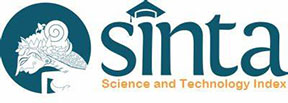Introduction of indigenous Trichoderma spp. as an induced systemic resistance for Dieback disease control on the Nutmeg seedlings
DOI:
https://doi.org/10.32734/jopt.v8i3.6267Keywords:
Lasiodiplodia theobroma, nutmeg plant , Trichoderma virens, T. harzianumAbstract
Dieback disease caused by L. theobromae has destroyed nutmeg plantations in Aceh Selatan. Until now, effective control has not been found, while farmer continue to use pesticides that have a negative impact on the environment. Therefore, biological control is an alternative to environmentally friendly control that is being promoted. The purpose of this researth was to control dieback by inducing resistance using three spesies of Trichoderma (local isolates) from the Nutmeg. The three isolates were isolates of plant origin and the nutmeg seeds used are one year old. This researth used a randomized blok design with three species of Trichoderma (T. virens, T. asperellum, and T. harzianum), three doses (5, 10, 15 g), and three replicates.The variables observed were the incubation period, disease incidence, length of stem discoloration, height of the plant, and plant wet weight. Thr result showed that all species of Trichoderma tested were able to induce systemic resistance and promoted plant growth, by inhibiting the incubation period, disease incidence, length of discoloration, increasing height and weight of plant. The treatment of T. virens 10 g was the best treatment result compared to the others.
Downloads
References
[Ditjenbun] Direktorat Jenderal Perkebunan. 2019. Statistik Perkebunan Indonesia 2019. Jakarta (ID). Dirjenbun Indonesia.
Halimah, N & Puspita, F. 2017. Induksi ketahanan dan pertumbuhan bibit kelapa sawit dengan bahan penginduksi berbeda jamur Trichoderma virens endofit terhadap penyakit busuk batang atas. JOM Faperta 4 (2): 1-15.
Harman, G.E., Petzoldt, R., Comis, A. and Chen, J. 2004. Interaction Between Trichoderma harzianum Strain T22 and Maize Inbred Line Mo17 and Effects of These Interakctions on Disease Caused by Pythium ultimum and Colletotrichum graminicola. Phytopathol. 94(2): 147-153
Harni R, Trisawa IM, Wahyudi A. 2011. Observasi dan identifikasi penyakit jamur akar pada tanaman pala di Kabupaten Aceh Selatan. Bulletin RISTRI Vol. 2(3): 383 - 390. https://media.neliti.com/media/publications/141559-ID-observasi-dan identifikasi-penyakit-jamur.pdf
Muniz C.R., F.C.O. Freire, F.M.P. Viana, J.E. Cardoso, P. Cooke, D. Wood, M.I.F. Guedes. 2011. Colonization of cashew plants by Lasiodiplodia theobromae: microscopical features. Micron 42: 419 – 428.
Oanh, K.L., Vichai, K., Chainarong, R. % Sirikul, W. 2006. Influence of biotic and chemical plant inducers on resistance of chili to anthracnose. Jounal Departement of Plant Pathology 40: 39 – 48.
Shahbaz, M., Z. Ikbal, A. Saleem, M.A. Anjun. 2009. Association of Lasiodiplodia theobromae with different decline disorders in mango (Mangifera indica) L.). Pak J Bot. 41(1): 259 – 363.
Sudantha, I.M. & A.L. Abadi. 2006. Biodeversitas jamur endofit pada vanili (Vanilla planifolia Andrews) dan potensinya untuk meningkatkan ketahanan vanili terhadap penyakit busuk batang. Laporan kemajuan Penelitian Fundamental DP3M DIKTI. Fakultas Pertanian Universitas Mataram, Mataram.
Susanna. 2018. Diagnosis dan Epifitotik Penyebab Mati Meranggas Pohon Pala di Aceh Selatan. Institut Pertanian Bogor. Disertasi..
Puspita, F dan T. T. Nugroho. 2016. Karakterisasi Molekular Trichoderma sp. Endofit dan Potensinya sebagai Antifungi terhadap Ganoderma boninense Pat. dan Pemacu Pertumbuhan Bibit Kelapa Sawit. Laporan Penelitian (Tidak Dipublikasi). Universitas Riau, Pekanbaru.
Yogaswara, Y., Suharjo, R., Ratih, S. & Ginting, C. 2020. Uji kemampuan isolate jamur Trichoderma spp sebagai antagonis Ganoderma boninense dan Plant growth promoting fungi (PGPF). J. Agrotek. 8 (2): 235-246.
Halimah. N & Puspita F, 2017. Induksi ketahanan dan pertumbuhan bibit kelapa sawit dengan bahan penginduksi berbeda jamur Trichoderma virens ENDOFIT terhadap penyakit busuk batang. JOM FAPERTA Vol. 4 No2. Riau
Downloads
Published
How to Cite
Issue
Section
License
Copyright (c) 2022 Jurnal Pertanian Tropik

This work is licensed under a Creative Commons Attribution-ShareAlike 4.0 International License.






















